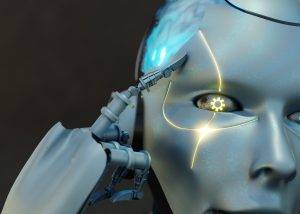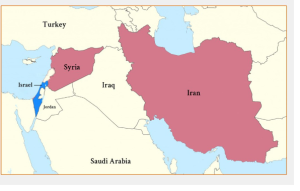Virtual or Real? A philosophical view of digitalization of human life

Dr Dimitris Gikas
Professor of Literature, Philosophy and History of Civilization
The level of people’s engagement with the digital world, which we call virtual, has led to discussions that refer on how that engagement affects human life. Among the concerned issues are the relationships of modern human with a two dimensions reality: the virtual and the real. In fact, there’s so much confusion and questioning about this bizarre situation of human life that many talk about one of the most serious consequences of technological development in human civilization.
Philosophy studied the human’s ability to shape the reality he wants. In fact, most of the philosophers who dealt with the nature of reality have referred to the strong relationship between experience and reality: what constitutes reality for human is nothing but the way he perceives events through his senses. The real texture of the world may escape the human being. The horizon of his experiences is the limit of his perception of reality.
In Plato’s Allegory of the Cave, human is depicted as a bound being that lives in a situation of half-truth, misinformed and full of conjectures. The only source for knowledge and experience are the shadows and idols that appear before him. His reality is the illusion in which he lives, the cave in which he is chained. This illusion and his long-lasting addiction to shadows and idols are so strong, that even when someone tries to indicate the truth to them, they are mocking him.
Kant refuses to accept that the only truth of the world lies in impressions and experience. The real truth is outside the horizon of man’s experiences. He recognizes that knowledge needs experience, but he knows how easily human manipulated on the phenomena of his experience. The “thing in itself” is the only truth. Experience is the way human categorizes the truth.
There have been philosophers who believed that reality is only defined by what man perceives or desires. Hume claimed that reality is limited to impressions and ideas that make up the contents of the experience. Schopenhauer believed that human will shapes the essence of reality. The Copenhagen School links reality with the observer – human, who shapes it parameters, depending on the way of measurement and observation.
However, technology and digital world have shaped another frame of reference – “reading” and perceiving reality. The knowledge of what or how anything exists has been replaced in many activities of human life by how it is presented in a virtual form. Human relationships, sexual life, many forms of learning and informing have been “uploaded” to the digital world, making the level of human participation in it as a major factor in acquiring relevant experience and knowledge.So, here we have an intermediate level of reading the reality based purely on the illusion. Illusion became a way of gaining experience and knowledge. Plato idols and shadows are not only here, but they are now ruling the world, as Plato predicted.
But why is this negative? Because man becomes addicted to the intermediate, to the unreal, to the limited and enslaved. His sociality, his political perception, the emotional relationships he develops with his fellow human beings is deducted at the level of illusion and fictional way of living. His emotional worlds, his ability to interpret the real, the development of social and interpersonal relationships, even his own crises and preferences (personal, social, political, etc.) are summarized in an “algorithmic” sequence, become the object of a virtual dimension. But the miraculous with man is his freedom to overcome his limitations, the ability to evolve beyond his primary condition. The virtual world acts restrictively on this ability. Freedom and the development of man require action in the real world, an interaction essential, presuppose a conscious existence. The illusion of the virtual could probably heal, but certainly could not work as an alternative reality. Man’s addiction to a state of shadow life marginalizes him socially, leads him to volitional bonds and makes him submissive to an artificial sphere of existence, a very limited and non-evolved existence. The type of experience gained through virtual reality is very restrictive and therefore very controllable. It closely resembles a laboratory for the analysis of experimental animals. The virtual world is a “Matrix” control, individually and socially.
What kind of answer can philosophy give to this terrifying complete replacement of human reality by digital? The same answer it has given for centuries: Paideia (Education). Education capable of separating the real human world from the world of illusions. Education that focuses on the actual event, not just its digital, impressive but fake, representation. Plato’s philosopher – King and Rousseau’s Emilio, have shown that Education is the only way of liberating man from the bounds of illusions. Man is prone to manipulation through images and impressions so much, that many times he allows others to shape the reality for him. Lack of conscious thinking, half-truth and spiritual inertia lead to the enslavement of human thought and life itself.







